Summary
- Freud’s Last Session explores the philosophical debate between Sigmund Freud and C.S. Lewis on the existence and nature of God.
- The film delves into the complex personal histories of both men, shedding light on their troubled pasts that shaped their beliefs.
- The performances by Anthony Hopkins and Matthew Goode are captivating, showcasing a masterclass in acting and creating intimate and powerful scenes.
Freud’s Last Session posits a fictional meeting between the iconic psychoanalyst and author C.S. Lewis at the dawn of World War II. Adapted from the play by Mark St. Germain, the film follows Sigmund Freud, terminally ill from oral cancer, as he relishes a philosophical sparring match with a Christian academic about the existence and nature of God. Their incisive banter spurs a deeper understanding of both men as flashbacks illuminate troubled pasts. A concurrent subplot focuses on Freud’s daughter’s closet sexuality and her obsessive behavior caring for him. This is heady stuff, pun intended, meant for audiences who appreciate sophisticated discourse from superb leads.
In 1939 London, Sigmund Freud (Anthony Hopkins) prepares to meet an important visitor in his home. He’s in excruciating pain and running out of morphine. Freud beckons Anna (Liv Lisa Fries), his youngest daughter and a noted child psychiatrist, to procure more medicine on her way back from a teaching lecture. Anna has something to discuss, but Freud won’t entertain her concerns. He turns on the radio for updates on Nazi Germany’s invasion of Poland. England is preparing for war.
A nervous C.S. Lewis (Matthew Goode) bumps into a hurried Anna before entering the courtyard. Why has he been summoned by a man notorious for being vain, condescending, and unquestionably brilliant? Lewis’ first impression of Freud goes exactly as expected. Freud criticizes his book, The Pilgrim’s Regress, written after his conversion to Christianity, as theological balderdash and insulting for a learned mind. For Freud, God is a purely human fabrication meant to cope with the terrors of the unknown.
A Conversation About God and Death
Sony Pictures Classics
Lewis fundamentally disagrees with Freud’s soulless interpretation. There must be some design to the universe and man’s fate. The conversation pivots to the personal as Freud begins to inquire about Lewis’ childhood. This uncomfortable turn also unleashes Freud’s dry sense of humor, which Lewis finds lacking. They’re interrupted by air raid sirens as the repartee escalates. Meanwhile, Anna faces collegiate misogyny and panics when confronted by her lover, Dorothy Burlingham (Jodi Balfour). She can’t address the truth about their relationship until her father’s been helped. As Lewis gingerly escorts the infirm Freud to a church being used as a bomb shelter, the piercing noise triggers dark memories of past events that shaped them.
Related: 11 Best Movies That Revolve Around Conversations
Freud’s Last Session explores the fear of death through verbose and emotional complexity. To say there’s a lot going on here is an understatement. Freud and Lewis aren’t going to change each other’s minds. They are steadfast in their beliefs, but can have a respectful discourse about unbridgeable differences. Freud observes that Lewis is a kind and thoughtful man who’s willing to listen. Lewis, at first intimidated by Freud, sees a frail father at the end of his life in need of cerebral fellowship. Freud was foremost a critical thinker. He refused to be caged by any doctrine. But this tenet also strengthened his unbridled narcissism and ego. Freud admits he may occasionally be wrong, but those chances are slim.
Director/co-writer Matthew Brown (The Man Who Knew Infinity) breaks up the thick discussion with genuine fear and loss. Lewis was a soldier in the Great War. He suffers crippling anxiety in confined spaces that remind him of hell in the trenches. Lewis and his brother were also shipped off to boarding school after their mother’s death. He tirelessly searched for meaning in a cruel world. Salvation in Jesus Christ was the desperately needed salve for a wounded man. The Jewish Freud was persecuted in Austria by the Nazis despite his international fame and scholarly standing. Freud felt the pain of tragic family deaths and fled to ensure Anna’s safety. How can the same God that gave humanity joy inflict such horrific cruelty?
An Acting Masterclass
Sony Pictures Classics
Lewis’ response to Freud’s conceptual damnation of God is one of the film’s best moments. Evil is a choice that man makes to fulfill base desires. The pathway to enlightenment isn’t forced, but there will be a penalty for those that ignore or mock God’s will. Freud doesn’t accept an ethereal master’s punishment or praise. Justice is served in the court of men. Those who wait for that existential reckoning are mistaken. Freud will take charge of his own fate.
RELATED: Freud’s Last Session Star Matthew Goode and Director Matthew Brown Interview
Brown loses intellectual steam when deviating from the primary arc. Freud and Anna’s bizarre co-dependency and her sexuality and mental anguish clouds the narrative. This is not to say that Anna’s problems and her impact on Freud aren’t important. Fries is quite compelling. You feel her trapped in Freud’s shadow. She’s unable to express her truth, but the film bites off more than it can chew and digest in two hours.
Hopkins and Goode are damn good. Their scenes together in the house could be viewed as a masterclass in acting. The blocking, stagecraft, and intimacy is sublime, but understandably not cinema with a general appeal. Freud’s Last Session ultimately doesn’t offer any insights into mortality. That may be disappointing to some, but it was never the film’s goal. Brown examines two vastly different men and schools of thought. Harmony can be reached without consensus.
Freud’s Last Session is a production of Fís Éireann / Screen Ireland, Last Session Productions, Subotica Productions, and 14 Sunset. It will be released theatrically on December 22nd from Sony Pictures Classics.
You can view the original article HERE.


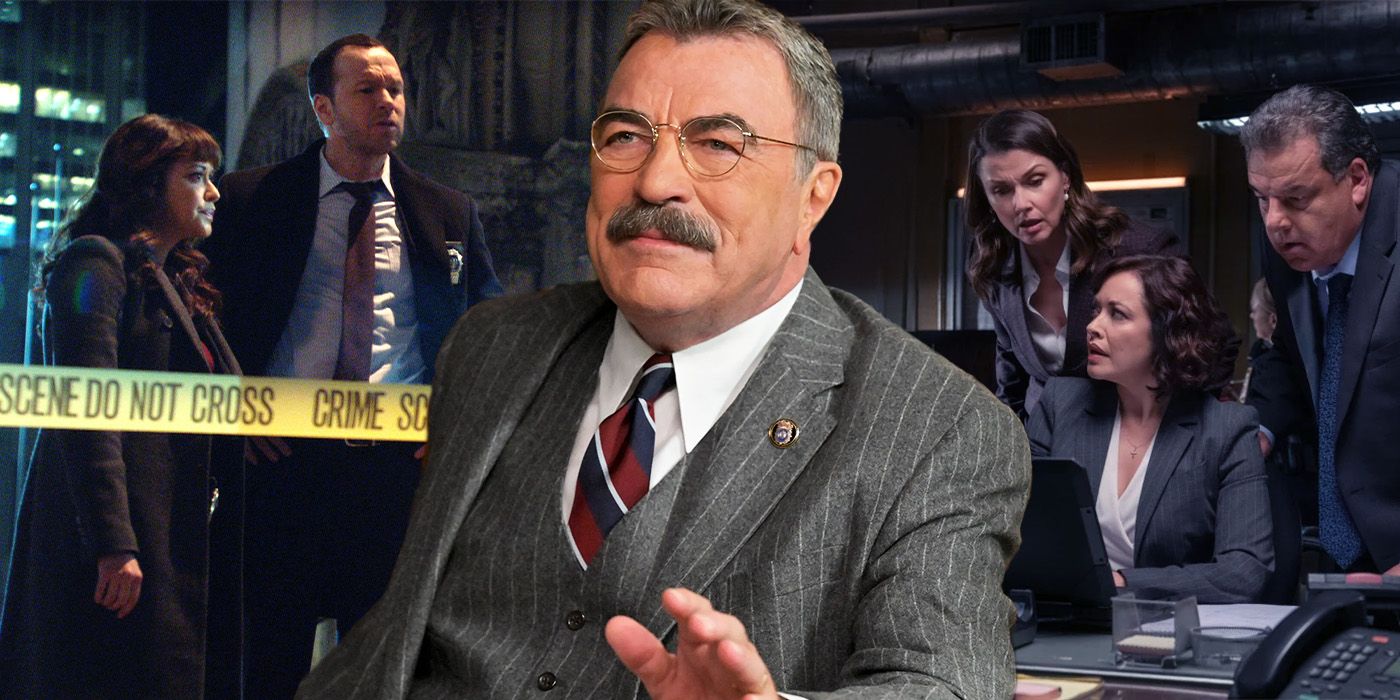
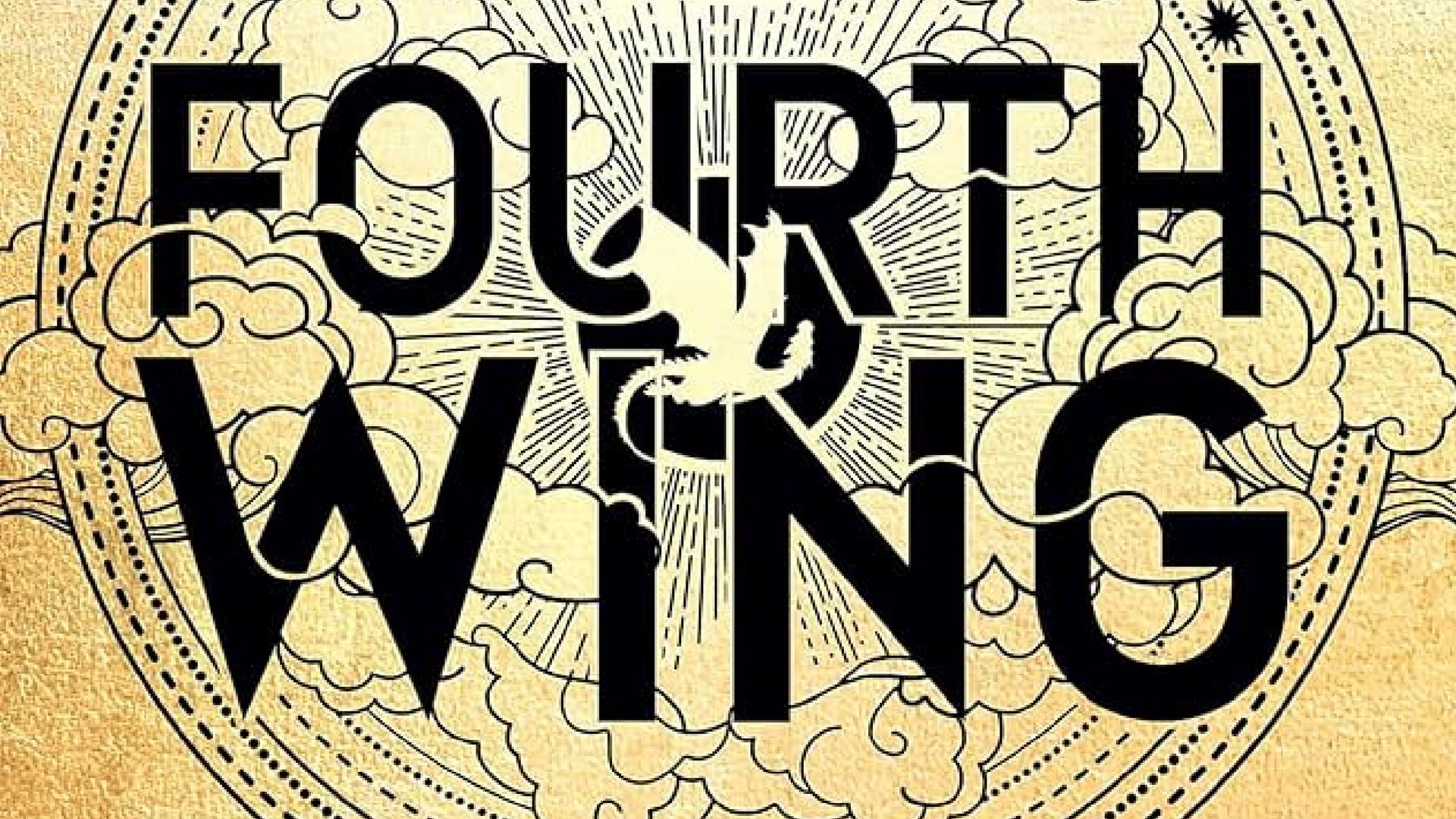

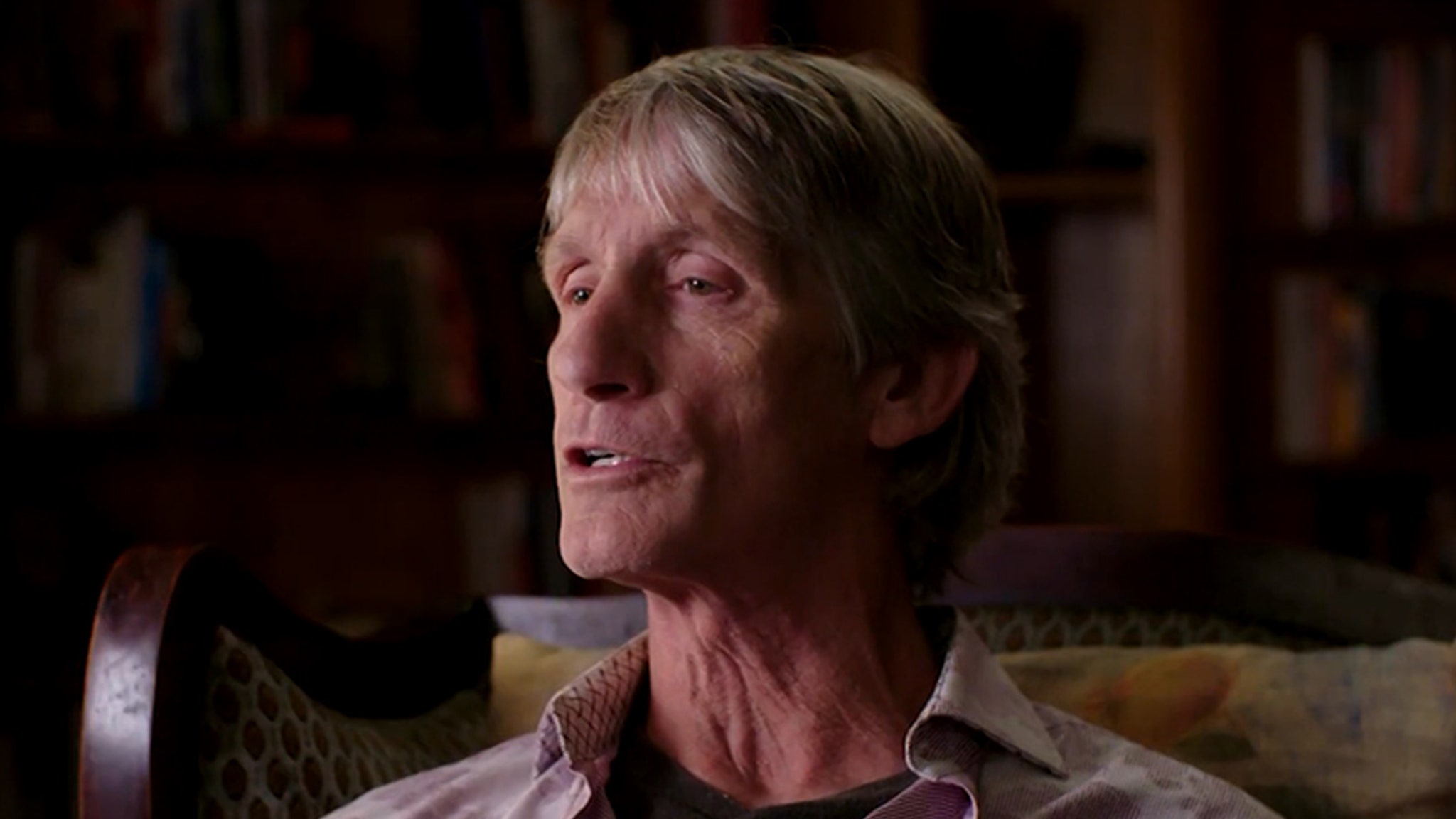







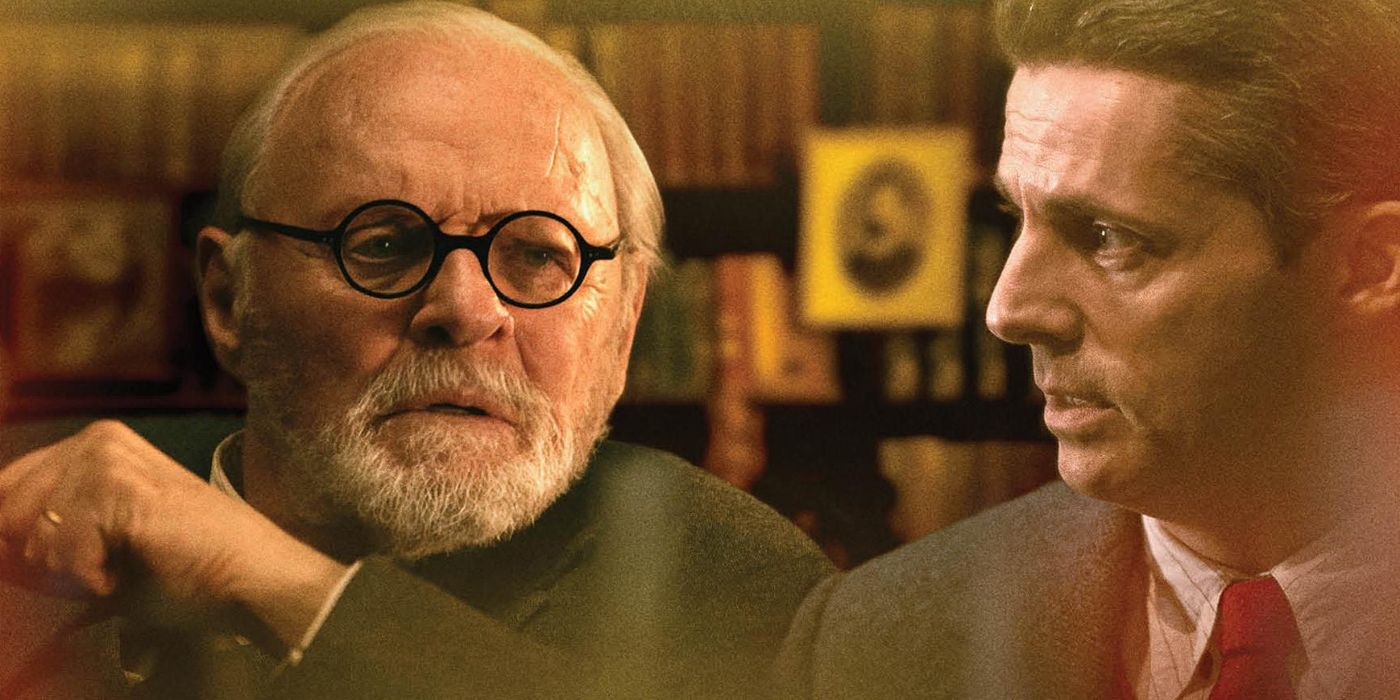
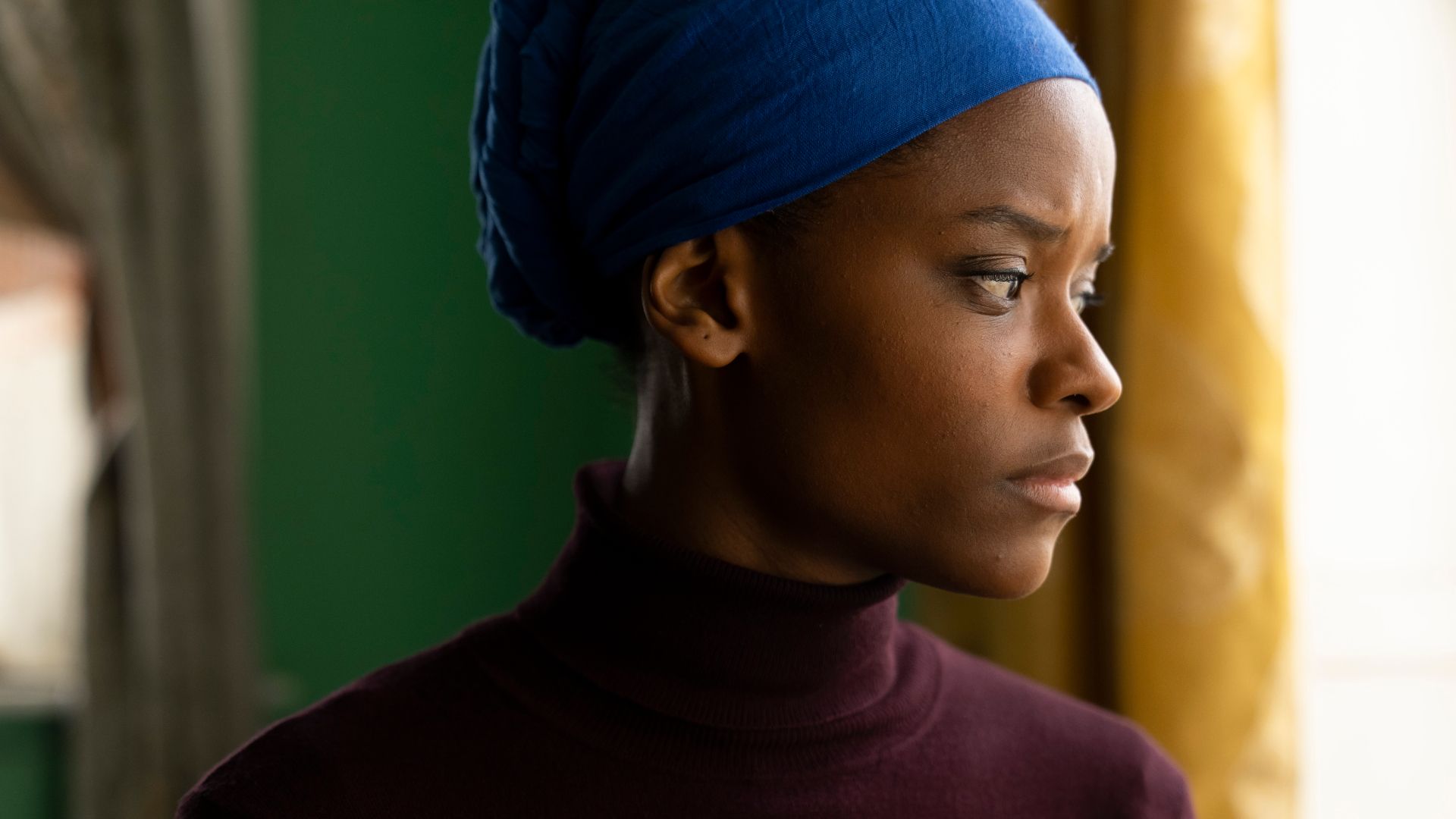











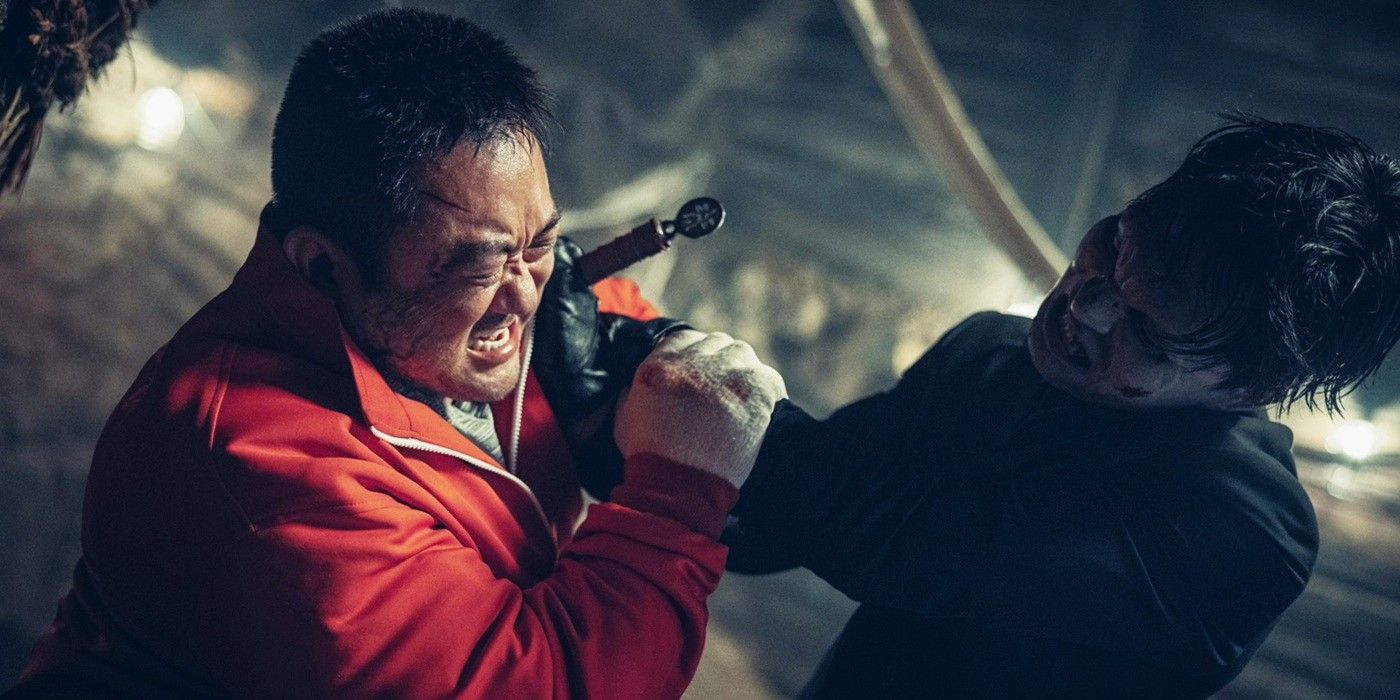
:quality(85):upscale()/2025/04/17/966/n/1922564/69dc205568017c7cad79f2.40744747_.png)


